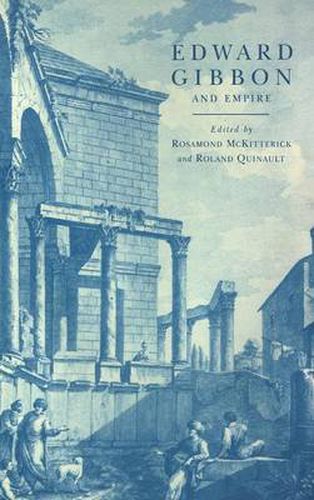Readings Newsletter
Become a Readings Member to make your shopping experience even easier.
Sign in or sign up for free!
You’re not far away from qualifying for FREE standard shipping within Australia
You’ve qualified for FREE standard shipping within Australia
The cart is loading…






This book examines Gibbon’s interpretations of empire and the intellectual context in which he formulated them against a background of the eighteenth- and late twentieth-century knowledge of late antiquity and the Middle Ages. Gibbon’s ideas of empire, his understanding of monarchy and the balance of power, his sources and working methods, the structure of the History of the Decline and Fall of the Roman Empire, his attitude towards the barbarians, the contrasting treatments of the eastern and western Empire, his appreciation of past civilizations and their material remains, his audience and their reactions - contemporary and Victorian - are considered in the light of the latest research on eighteenth-century intellectual history on the one hand and on late antiquity, Byzantium and the Middle Ages on the other. The book breaks new ground in taking the form of a dialogue between experts on the fields about which Gibbon himself wrote, and eighteenth-century intellectual historians.
$9.00 standard shipping within Australia
FREE standard shipping within Australia for orders over $100.00
Express & International shipping calculated at checkout
This book examines Gibbon’s interpretations of empire and the intellectual context in which he formulated them against a background of the eighteenth- and late twentieth-century knowledge of late antiquity and the Middle Ages. Gibbon’s ideas of empire, his understanding of monarchy and the balance of power, his sources and working methods, the structure of the History of the Decline and Fall of the Roman Empire, his attitude towards the barbarians, the contrasting treatments of the eastern and western Empire, his appreciation of past civilizations and their material remains, his audience and their reactions - contemporary and Victorian - are considered in the light of the latest research on eighteenth-century intellectual history on the one hand and on late antiquity, Byzantium and the Middle Ages on the other. The book breaks new ground in taking the form of a dialogue between experts on the fields about which Gibbon himself wrote, and eighteenth-century intellectual historians.